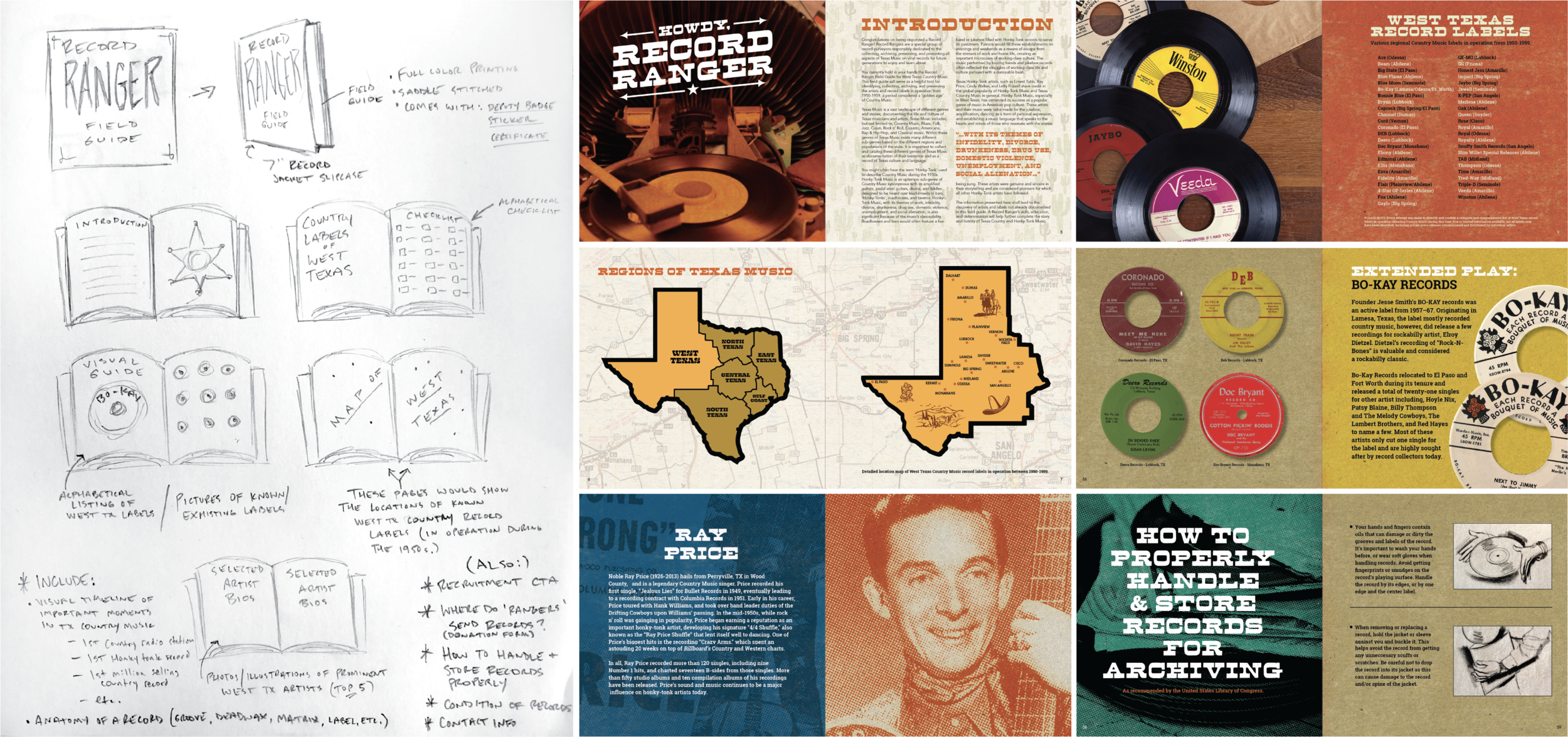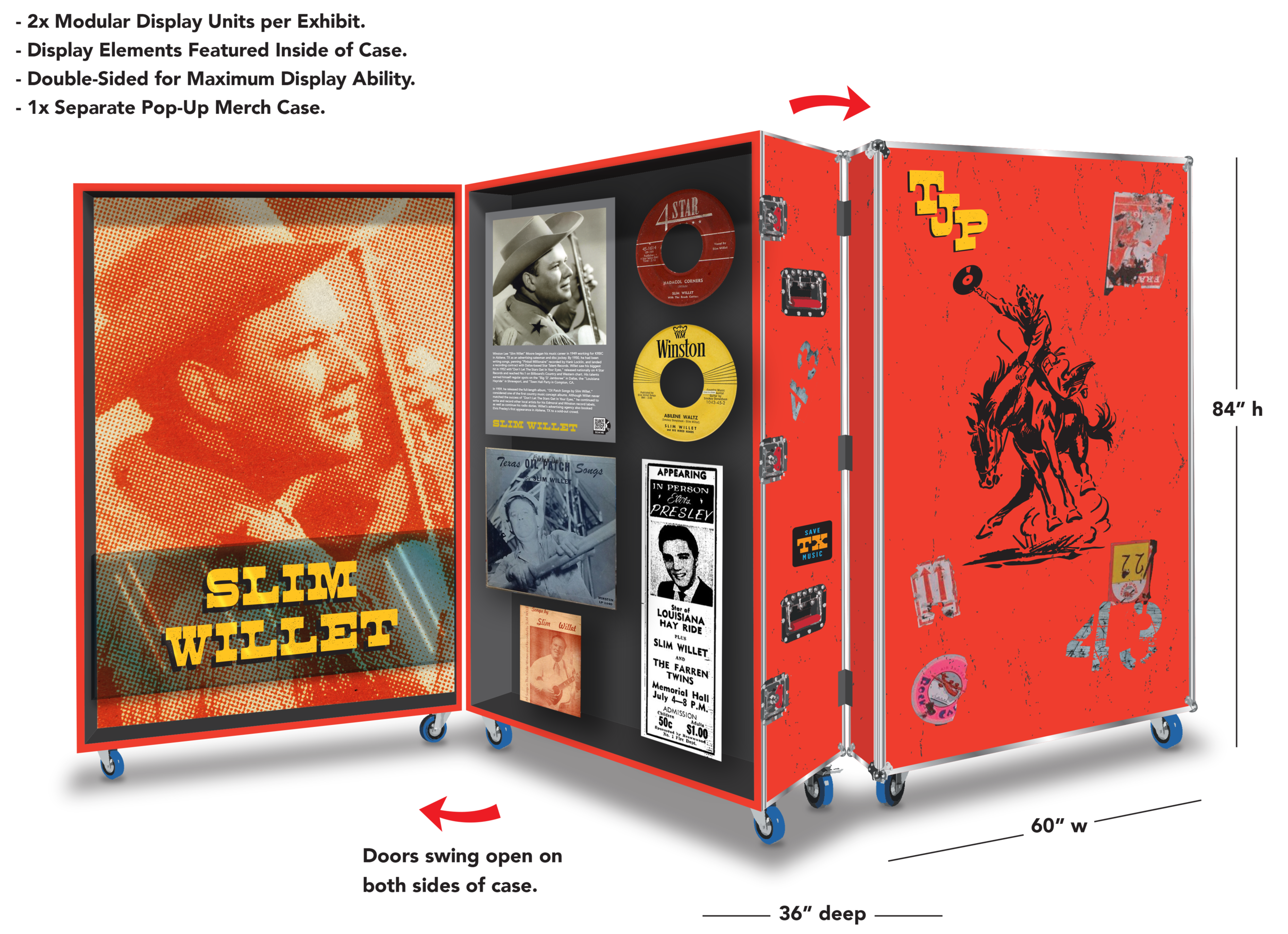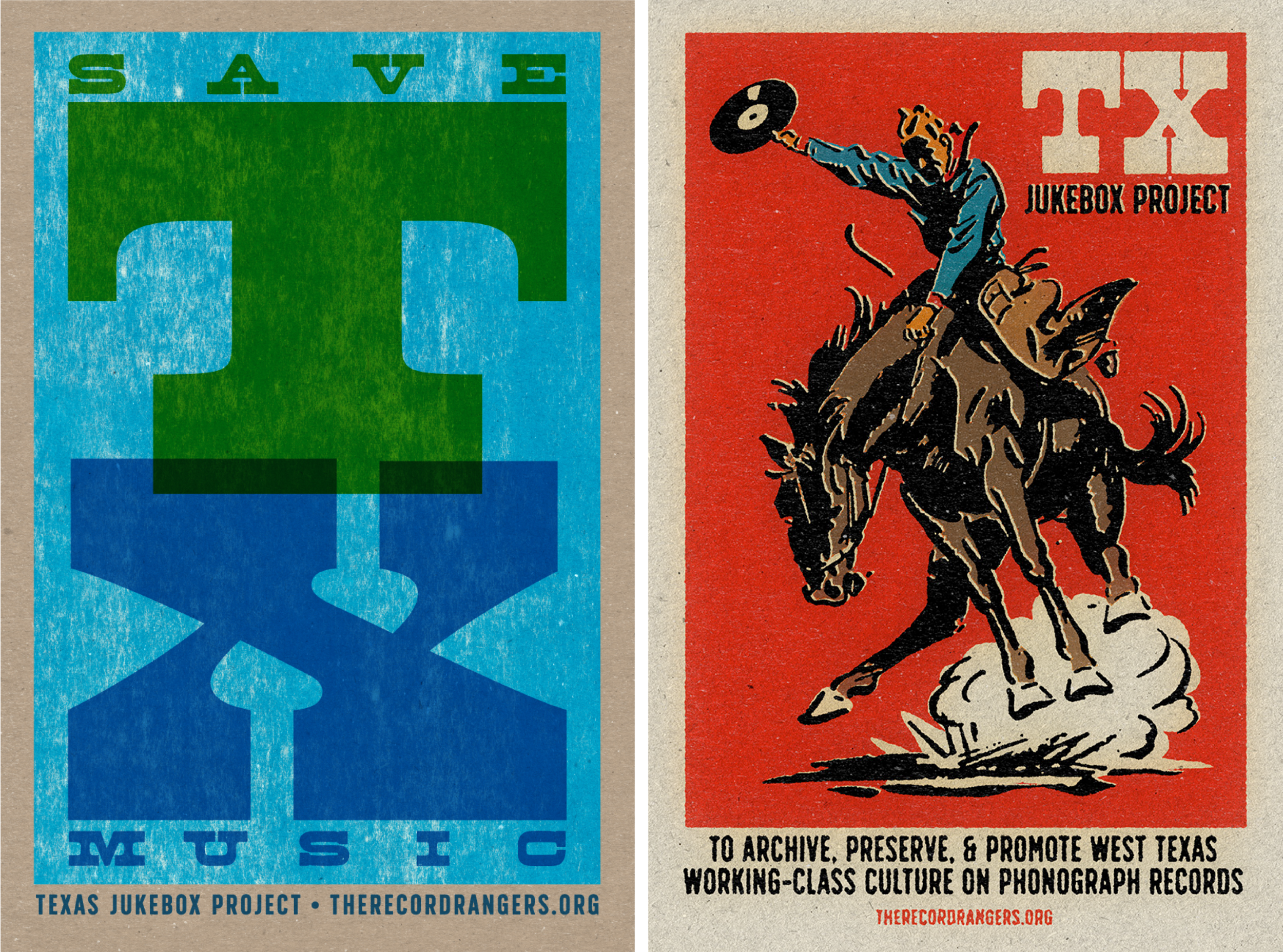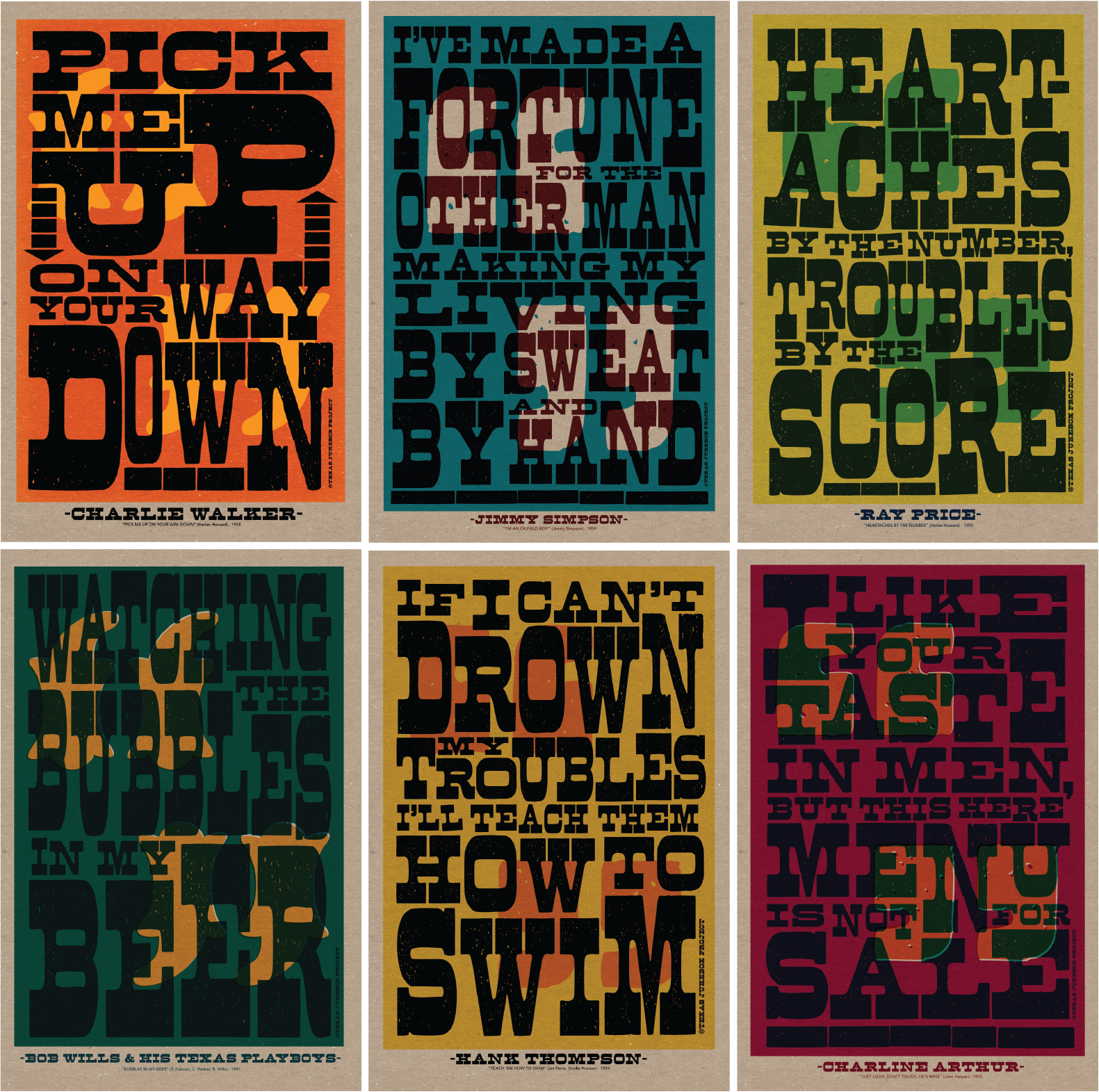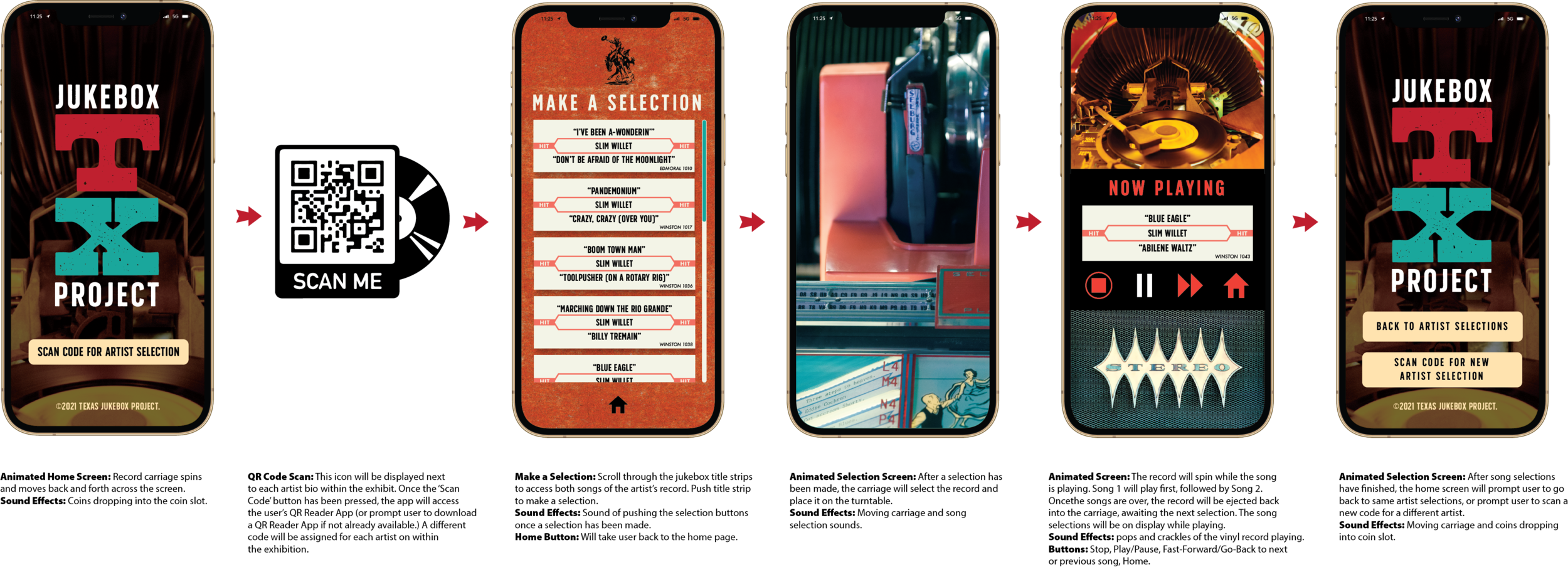

Mission
Much of the music recorded and released in Texas during the 1920s-1960s exists primarily on vinyl or shellac phonograph records and is not widely available commercially or legally through today’s mainstream digital music platforms. In many cases, local and regional artists and record labels had production of less than 300 copies, often times, with no major distribution outside of their immediate areas. Touring artists sold records out of the trunks of their cars during appearances, if they were lucky. Establishing a dedicated archive to preserve and promote these recordings, artists, and record labels will help reduce the risk of losing significant pieces of history, language, art, and documents of working-class culture. Currently, no such public archive dedicated to Texas music exists.
So many recordings get thrown away all the time, mostly because individuals and institutions no longer have the space, funding, interest, and/or time to manage such large collections. That’s where we come in. WE ARE THE RECORD RANGERS. Our mission at the Texas Jukebox Project, a 501(c)(3)non-profit organization, works to make sure recordings by Texas artists and Texas-based record labels are not lost to time or fall further into obscurity.
Our team of dedicated record enthusiasts execute four main tasks:
Collect
Archive
Preserve
Educate
~ We collect audio recordings on 45rpm, 78rpm, 33 1/3rpm records, reel-to-reel tapes, acetate recordings, cassettes, compact discs, books, magazine, photos, and various other media that help tell the stories of Texas music and artists, be it through country music, blues, rock n’ roll, folk, jazz, spoken word, or ethnic recordings.
~ We archive our materials utilizing the latest professional standards as set forth by the Smithsonian Institute and the Recording Industry Association of America.
~ We preserve and prepare our materials for academic study and future public enjoyment. (We are currently working toward our ultimate goal of building the world’s largest online library of Texas recordings, as well as a future brick-n-mortar facility.)
~ We educate the public about our mission through visual design and other creative endeavors.
The TJP employs current archival standards for audio and visual media as set forth by the Smithsonian Institute and the Recording Industry Association of America. As we acquire audio media, we clean, catalog, and digitize recordings for future access.
We work diligently to acquire audio and visual materials from public and private institutions, collectors, garage sales, estates, or wherever our search takes us. If you are an individual, public/private institution, or organization looking to part with your collections, please contact us. We’re ‘saving Texas music one record at a time’, and no collection is too large or small. All donations are tax deductible to the fullest amount allowed by the IRS. Seriously…please consider us before tossing out that record collection you think no one is interested in.
The seeds of the Texas Jukebox Project were planted in 2020 while founder, Jonathon Kimbrell, was working on his MFA graduate thesis, specifically focusing on West Texas country music from the 1950s. The idea was to use design to show why this music was important to culture and language, and why it was worthy of preservation. Below are some concepts from Kimbrell’s grad thesis, elements that are currently used to educate the public and promote the TJP’s mission of ‘saving Texas music one record at a time'.’
Spreads and concept sketches for the “Record Ranger Field Guide: West Texas Edition.”
Modular exhibition unit prototype.
Call to action poster design concepts.
Concept poster design featuring lyrics from popular Texas honky-tonk songs.
Concept ap design to stream music from the TJP archive.
Merchandise concepts, used to help support the TJP’s mission.


What’s in a Name?
How did we come up with the name ‘Texas Jukebox Project’, you ask? The answer is quite simple. The jukebox was the means by which many people first heard their favorite recording stars, aside from local radio stations. When roadhouses, juke joints, and beer halls couldn’t afford a live band, the jukebox was an inexpensive means to entertain patrons with music. Patrons would pump hand-fulls of nickels and dimes into the jukebox and dance all night. In the 1950s, Lefty Frizzell’s honky-tonk recordings could be heard on nearly every jukebox across the south. While we don’t preserve the jukeboxes themselves, (plenty of organizations already do that), we aim to save much of the music that could be heard from them.
